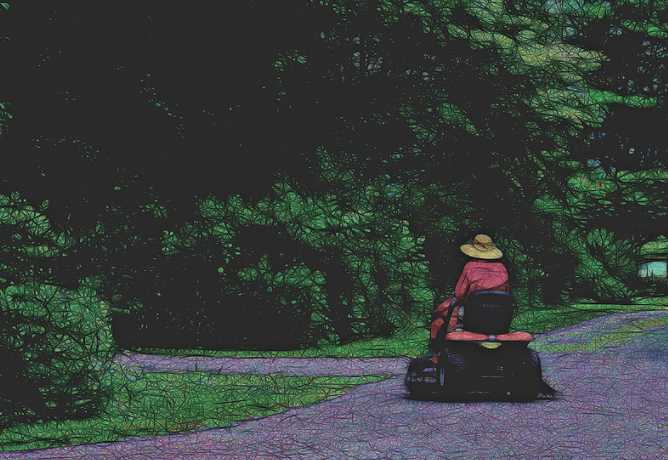Translated by OSTAP KIN
—Tell me about your new girlfriend, about the one
you’re living with now. What’s between you two?
—The air is between us. I just live with her
the way small children live with their fear.
Here’s what’s between us: her bizarre routes,
apples and wine, all her Protestantism,
clothes she carries in her bag like a parachute,
and the color of her hair,
which she changes
the way you’d change citizenship.
She’s always disappearing; she has her own pair of keys.
She comes back and falls asleep in silence, solid and stiff.
I listen, bewildered, as sometimes at night
her heart stops like a tram at the last station.
She stops stubbornly plodding time,
porcelain chimes tinkling as she walks.
Then she cuts her red hair,
like mowing grass to look after the lawn.
Somehow she rolls it all up like a scroll
and then I can really see this life
that flows like mascara from under her eyelashes,
and death retreats like a defeated army.
She pulls the sharp splinters of sorrow from my palm.
She touches my body as if gathering a plentiful harvest.
This is exactly why I love her,
as only a woman can love another woman.
Serhiy Zhadan, Ukrainian poet, fiction writer, essayist, and translator, was born in the Luhansk region in 1974. He has published over a dozen books of poetry and prose. His latest books in English translations include novels Depeche Mode (Glagoslav, 2013) and Voroshilovgrad (Deep Vellum Press, 2016). He is the recipient of the Hubert Burda Prize for Young Poets (Austria, 2006), the Jan Michalski Prize for Literature (Switzerland, 2014), and the Angelus Central European Literature Award (Poland, 2015). Zhadan lives in Kharkiv.
Ostap Kin has published work in The Common, St. Petersburg Review, Springhouse, Trafika Europe, and Ohio Edit. He is currently working on an anthology of Ukrainian poetry about New York (forthcoming from Academic Studies Press). He lives in Brooklyn, New York.



